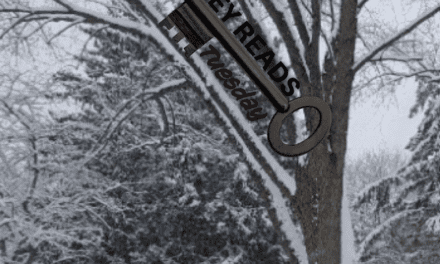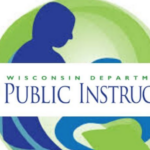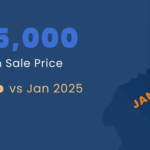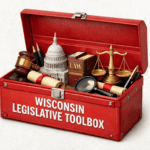As you contemplate shoveling this late March snow storm or letting it sit there for a few days until it melts, we interrupt your checking the results of the NCAA basketball tournament to bring you today’s Key Reads.
This is a troubling statistic that isn’t getting enough attention in the mainstream press or from policy makers:
About half of Milwaukee Public School students were considered chronically absent in the 2022-23 school year for missing over 10% of school days.
Beyond the bean counter look at the ledger, consider the human cost of that mind boggling number. We’re failing to educate these kids, and most defenders of MPS have only one answer: Send more money.
Even this article that highlights that statistic downplays its significance and uses the COVID-19 pandemic as an excuse. Meanwhile, we remind you that the State Department of Public Instruction thinks it’s ok to allow the habitually truant to move up a grade every year, despite missing so much classroom instruction.
Here’s how much school Wisconsin students missed last school year | Milwaukee Journal Sentinel
In the 2022-23 school year, Wisconsin students collectively attended about 92% of total school days, according to public school data from the state Department of Public Instruction.
That’s up slightly from a 91% attendance rate in the 2021-22 school year, a low point for attendance. Before the pandemic, the statewide attendance rate was about 94%.
About 20% of Wisconsin students were considered chronically absent in the 2022-23 school year. That’s down from 23% the prior year, but still above pre-pandemic levels of about 13%.
Students are counted as chronically absent if they miss over 10% of school days.
Students at Milwaukee Public Schools collectively attended about 82% of school days in the 2022-23 school year, data show. That’s up from about 79% the prior year but below the pre-pandemic rate of 87%.
About 50% of MPS students were considered chronically absent in the 2022-23 school year for missing over 10% of school days. That’s down from 58% the prior year but still higher than the pre-pandemic level of 37%.
Thursday was the deadline for Speaker Vos to submit his challenge to the recall petitions submitted against him last week. As expected, the Republican from Burlington and his attorneys provided a thorough dressing down of the entire debacle.
Vos says recall effort against him is ‘plagued with fraud and criminality‘ | WPR
Vos filed his recall signature challenge with the Wisconsin Elections Commission Thursday afternoon. It claims that although organizers of the recall effort submitted 10,702 signatures, the commission itself made an initial finding that only 5,905 of the signatures came from Vos’ previous 63rd Assembly District, under the old GOP maps.
“The recall petitions were also plagued with fraud and criminality,” Vos’ challenge said.
“As to the circulators, several have felony convictions, names were forged on signature pages (including those of children), and addresses could not be verified,” Vos’ attorneys claimed. “Turning to the signers, hundreds of them signed multiple times, used illegible writing, or provided incomplete address information.”
Finally, Vos’ challenge said the entire recall effort “must be rejected for legal reasons” because the Wisconsin Supreme Court’s majority struck down Republican-drawn voting maps as unconstitutional.
“As a result, a recall cannot occur in the District listed on the recall petitions,” Vos’ attorneys claimed.
In a statement, Vos said he is proud to represent Racine County and grateful that the community “continues to stand behind me and my record.”
“This failed effort has proven to be what I said it would be from the beginning — a waste of time and resources,” Vos said. “That is especially true for the residents whose identities have been stolen and the local officials who must now investigate these matters.”Under the state’s recall laws, those who filed the petitions will have a chance to respond to the allegations. The Wisconsin Elections Commission will eventually vote on whether to order the election.
Meanwhile in Madison, the Governor signed off on efforts aimed at cracking down on AI in the use of all advertising to prevent consumers from being deceived by what is known as deep fakes. This legislation not only helps consumers make honestly-informed decisions, it protects the reputations of well-run companies and consumer products. Wait, no that’s not true. The new law that received bipartisan support and the Governor’s signature doesn’t cover the entire marketplace. Only politicians.
Priorities.
Governor Evers also signed several other bills and issued some more vetoes yesterday as well. Here’s the recap:
Wisconsin Gov. Evers vetoes GOP voting, election audit bills; greenlights political AI crackdown | Associated Press
Wisconsin Gov. Tony Evers on Thursday vetoed Republican proposals that would have allowed election observers to get closer to poll workers and required a new post-election audit, while signing into law a bill requiring that political TV ads using artificial intelligence come with a disclaimer.
Evers, a Democrat, also signed a bipartisan bill exempting purchases of precious metal, such as gold and silver, from the state sales tax. The exemption does not apply to jewelry and other personal property, including works of art and scrap metal. But it would exempt from the sales tax coins, bars, rounds or sheets containing at least 35% of gold, silver, copper, platinum, or palladium.
The AI bill also passed with bipartisan support. Backers said the disclaimer is needed for ads that use the rapidly evolving AI technology so viewers get help in determining the difference between fact and fiction…
Evers vetoed four Republican election-related bills.
One would have required a post-election audit, which Evers said he vetoed because he objects to Republicans’ “ongoing efforts to interfere with and usurp control over election administration and undermine Wisconsin’s election administration system.” Existing post-election audits already ensure that the state’s elections are fair and run properly, Evers said…
He vetoed two bills that would have tightened the rules for casting and collecting absentee ballots in nursing homes. Republicans introduced them after criticizing how voting was conducted in nursing homes during the height of the COVID-19 pandemic.
That’s a wrap for this week. By the time Monday rolls around we’ll know how well Wisconsin’s teams did in the tournaments, and whether or not five or more inches of late March snow can disappear in less than 72 hours.
Good luck to all.


















